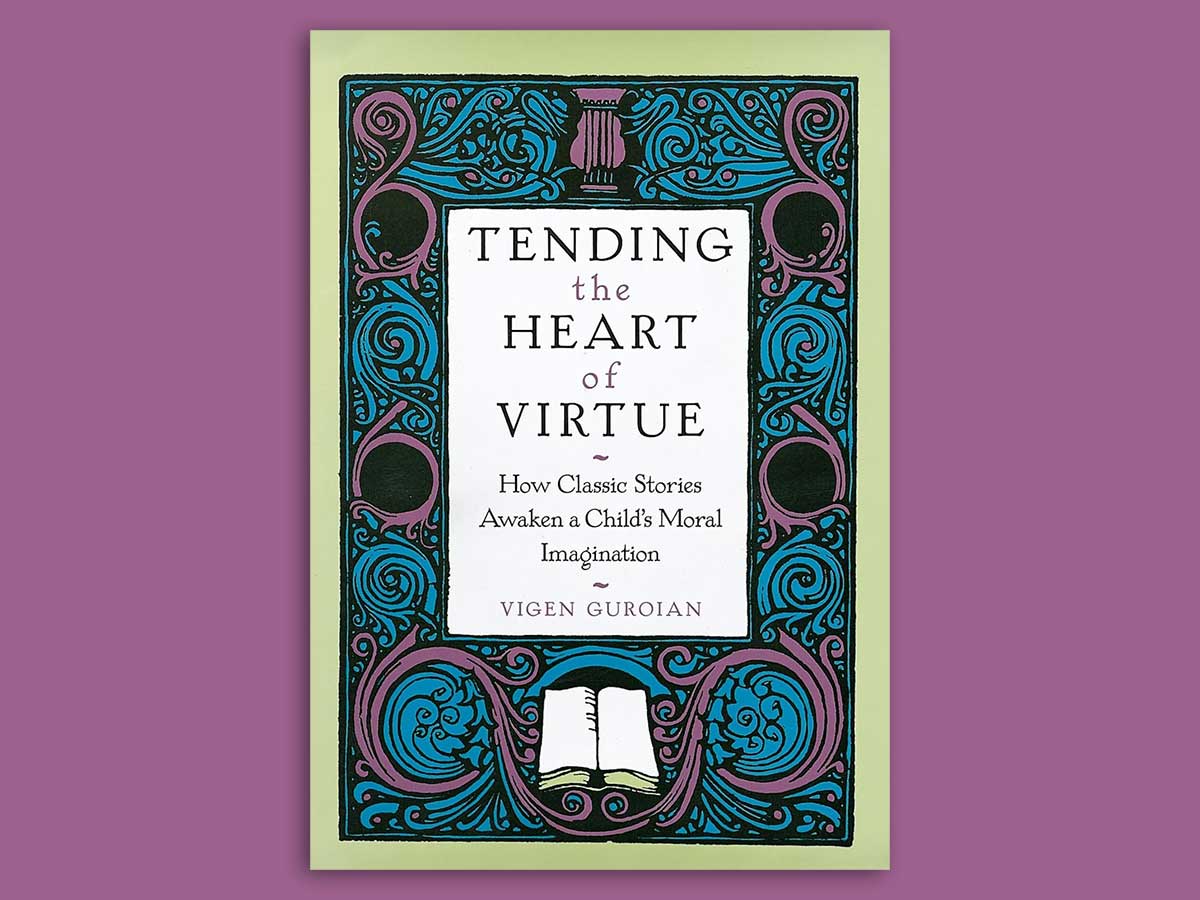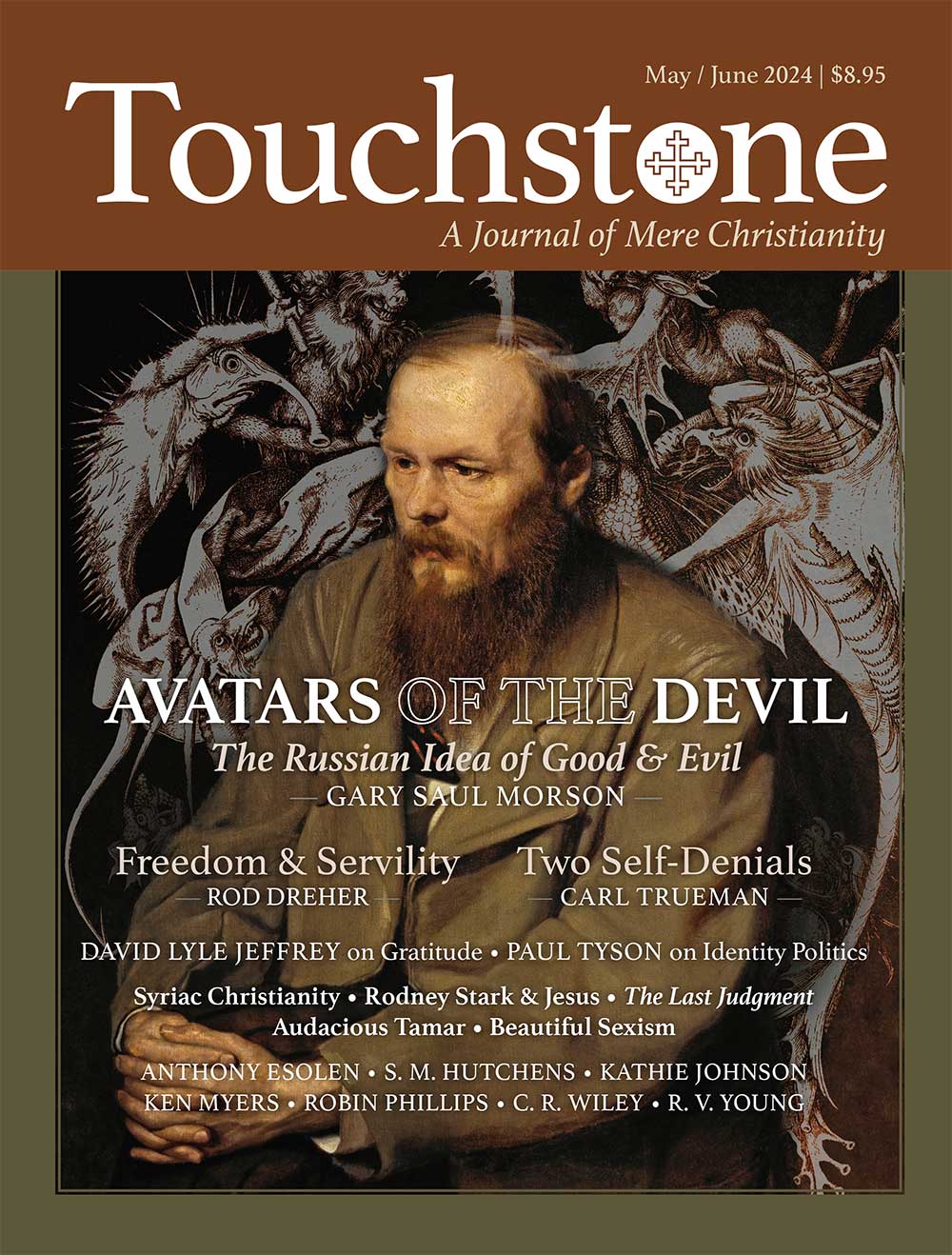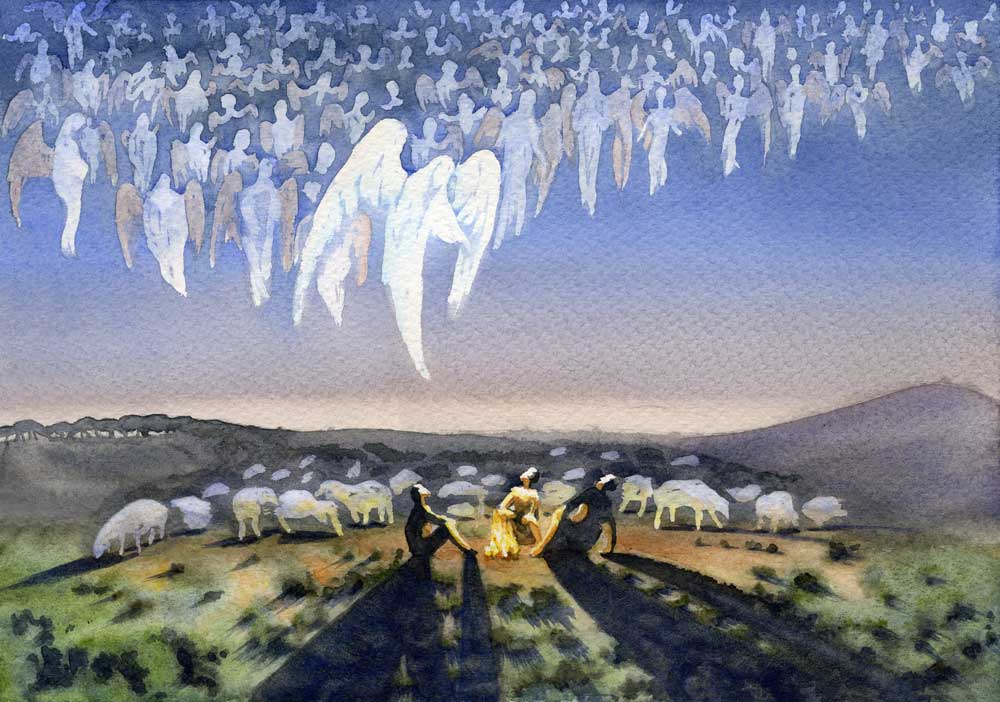A Child̕s Garden
Tending the Heart of Virtue: How Classic Stories Awaken a Child̕s Moral Imagination, Second Edition, by Vigen Guroian
Twenty-five years ago, Vigen Guroian published Tending the Heart of Virtue: How Classic Stories Awaken a Child’s Moral Imagination (Oxford University Press). Since then, the book has become a minor classic in the homeschooling community and classical schools. It isn’t hard to understand why: not only does Dr. Guroian defend the need for fairy tales and fantasy literature, but he walks through numerous stories showing their power to awaken the moral sense.
Dr. Guroian’s love of stories grew out of his boyhood experience of the fantastic when hearing his grandmother tell tales of the giants and heroes in her Armenian homeland. His discussion of stories retains the magic and wonder we have as children but often need to relearn as adults.
When Tending the Heart of Virtue first came out in 1998, our culture was contending against the shallow bowdlerization by Disney of our classic stories, as well as the eclipse of those stories in the school system to make room for more “useful” literature. Now the stakes are much higher: from those who seek to cancel fairy tales for not being politically correct, to activists who would instrumentalize fantasy literature for social agendas, to academics who want to overly psychologize the classic stories, to those who would rewrite myths and fairy tales to include transgressive elements, it has never been of greater importance to defend our rich legacy of stories.
These are some of the reasons I was delighted when Oxford University Press brought out a new and expanded edition of Dr. Guroian’s classic book.
Delving into the Stories
Tending the Heart of Virtue is more than just an apologetic for fairy tales and fantasy literature (though the introduction and first chapter are among the best defenses of the imagination I have ever come across, on a par with the essays on this topic by MacDonald, Chesterton, Lewis, and Tolkien); rather, most of the book delves into specific stories that parents and educators may never have read or may only be familiar with in cartoonish versions.
Dr. Guroian discusses familiar stories like The Lion, the Witch, and the Wardrobe and The Wind in the Willows, as well as some less familiar ones like the original version of Felix Salten’s Bambi. The new edition even adds four stories not covered in the first: Andersen’s “The Nightingale” and “The Ugly Duckling,” the Grimm brothers’ “Cinderella,” and John Ruskin’s scandalously neglected The King of the Golden River.
The stories are discussed under a particular theme and are usually coupled with another story with the same theme. For example, in chapter 3, on love and immortality, he explores The Velveteen Rabbit and “The Little Mermaid,” while chapter 6, on heroines of faith, looks at the characters of Princess Irene in The Princess and the Goblin and of Lucy in Prince Caspian.
Dr. Guroian explains how these stories cultivate virtue through disclosing the wonder and romance of goodness, moving us deeper into the rightly ordered imagination that is a precondition to virtuous living. This point cannot be sufficiently underscored at a time when so much contemporary fiction disorders the moral sense, whether through idolatrous fantasy or diabolical images. A child whose imagination has become disordered no longer perceives virtue as liberating, life-giving, and beautiful, but as burdensome. The solution is not so much to teach ethics, but to tell good stories.
Useful on Their Own Terms
I confess I tend to be skeptical of Christian authors who write books about fairy tales and fantasy literature, especially those who would tell me what I’m supposed to get out of a story. In my experience, this often amounts to either instrumentalizing the text for pragmatic ends or imposing a Christian meaning externally onto the text. It’s easy enough to object to the instrumentalizing of literature by woke critics (the types of people who would make “The Ugly Duckling” about minority victimhood or reduce “Cinderella” to a tract on self-actualization), yet Christians have their own version of this same instrumentalization, with endless publications on such topics as how to find God in The Lord of the Rings or how to interpret Homer Christianly. While such approaches are not necessarily wrong, they often come with a subtext that good art lacks intrinsic value and only becomes valuable as a means to other ends.
When I first picked up Tending the Heart of Virtue, I was prepared to be put off. A book about cultivating morality through classic stories seemed like a recipe for destroying the stories with didactic moralizing. “Not another book that treats stories simply as a resource,” I thought.
I was delighted to be wrong. Dr. Guroian does see classic stories as useful, insofar as they awaken the moral imagination; yet they do this on their own terms, without our needing to impose meaning from outside. Where he offers commentary, the purpose is gently to draw out elements in the stories that might be easy for moderns to overlook, thus enabling the stories to speak for themselves in all their wonder and glory. Furthermore, Dr. Guroian sees classic stories as a challenge to a didactic, agenda-driven approach to ethics that so often characterizes moral instruction. As he writes, “Not didacticism, but rather the narrative, the dramatic action, makes the fairy tales meaningful. Narrative supplies the imagination with important symbolic information about the shape of our world and appropriate responses to its inhabitants.”
Fairy tales, he explains, offer a richer and deeper tutelage in virtue than didacticism or exhortation because they demonstrate how beauty can transform our lives and how goodness is attractive. In so doing, the stories incubate our hearts with a vision of flourishing far richer and formative than simple lessons on how to be a good little boy or girl:
Mere instruction in morality is not sufficient to nurture the virtues. It might even backfire, especially when the presentation is heavily exhortative and the pupil feels coerced. Instead, a compelling vision of the goodness of goodness itself needs to be presented in such a way that it is attractive and stirs the imagination.
Wisdom from Vicarious Experience
Stories do just that. As we participate in the experience of other people and creatures—whether by traveling with the Pevensie children in Narnia or by doing battle against stoats and weasels to recapture Toad Hall—we gain the type of wisdom that comes from experience, although in this case the experience is vicarious, coming through the characters we love. Such wisdom involves an induction into the deep truths of life: love, beauty, friendship, immortality, loyalty, courage, and so forth. Again from Dr. Guroian:
The deep truths of a good story, especially fairy tales, cannot be revealed through discursive analysis alone—otherwise why tell the story? Rather, these truths must be experienced through the story itself and savored in the immediacy of the moment that unfolds with the impending danger of the quest or the joy of reunion with the beloved.
Apart from being a joy to read, Tending the Heart of Virtue is a great resource. Sometimes parents ask me for recommendations of good stories to read to their children. You will find all the recommendations you need here. The stories discussed in the main body of the work are supplemented with a concluding “Bibliographical Essay,” which offers even more recommendations. Dr. Guroian also provides a list of anthologies in which you can find the original versions of tales before they were bowdlerized or abridged in later editions.
Robin Phillips has a Master’s in Historical Theology from King’s College London and a Master’s in Library Science through the University of Oklahoma. He is the blog and media managing editor for the Fellowship of St. James and a regular contributor to Touchstone and Salvo. He has worked as a ghost-writer, in addition to writing for a variety of publications, including the Colson Center, World Magazine, and The Symbolic World. Phillips is the author of Gratitude in Life's Trenches (Ancient Faith, 2020), and Rediscovering the Goodness of Creation (Ancient Faith, 2023). He operates a blog at www.robinmarkphillips.com.
Share this article with non-subscribers:
https://www.touchstonemag.com/archives/article.php?id=37-03-052-b&readcode=11091
subscription options
Order
Print/Online Subscription

Get six issues (one year) of Touchstone PLUS full online access including pdf downloads for only $39.95. That's only $3.34 per month!
Order
Online Only
Subscription

Get a one-year full-access subscription to the Touchstone online archives for only $19.95. That's only $1.66 per month!
bulk subscriptions
Order Touchstone subscriptions in bulk and save $10 per sub! Each subscription includes 6 issues of Touchstone plus full online access to touchstonemag.com—including archives, videos, and pdf downloads of recent issues for only $29.95 each! Great for churches or study groups.
Transactions will be processed on a secure server.
more on education from the online archives
more from the online archives

8.4—Fall 1995
The Demise of Biblical Preaching
Distortions of the Gospel and its Recovery by Donald G. Bloesch
calling all readers
Please Donate
"There are magazines worth reading but few worth saving . . . Touchstone is just such a magazine."
—Alice von Hildebrand
"Here we do not concede one square millimeter of territory to falsehood, folly, contemporary sentimentality, or fashion. We speak the truth, and let God be our judge. . . . Touchstone is the one committedly Christian conservative journal."
—Anthony Esolen, Touchstone senior editor













